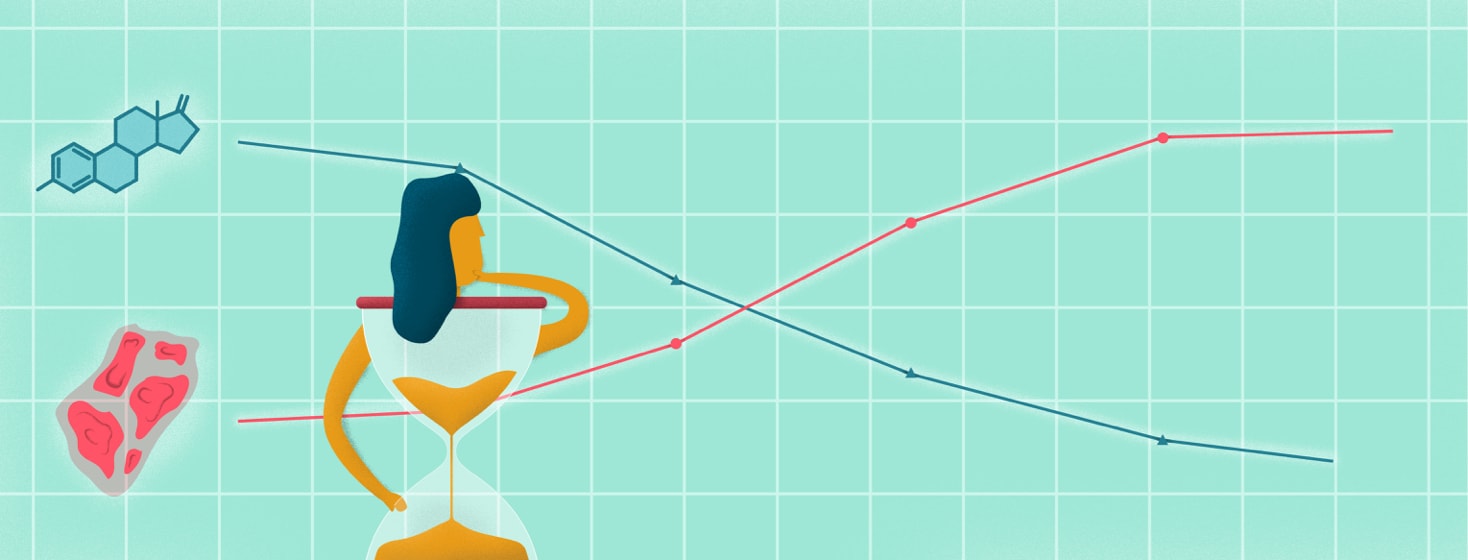What It's Like To Have Psoriasis During Menopause
I just want to say ladies; if you haven’t been here yet, you are in for a surprise. Let's not talk about the hot flashes, weight gain, insomnia, and nervousness. We also have unexplained mood swings, sexual problems, urinary incontinence, and the absence of menstruation.
Psoriasis symptoms worsening during menopause
This is my turning point in our life. For psoriasis patients, menopause symptoms can be worse than that. You have to deal with the horrible flare-ups and pain which can be a real nightmare.
Our female hormones vary significantly at different stages in our life. At puberty, the body begins to produce sex hormones, including estrogen and progesterone. Those hormone breakouts can cause heightened skin problems such as acne and psoriasis.
Many researchers believe that hormones cause immune changes in the skin. The symptoms of psoriasis tend to grow during puberty, postpartum, and during menopause. I know that my worst flares were during puberty.
Just speaking from my own personal experience, psoriasis in my everyday life caused me to be depressed, and to develop diabetes and many other chronic diseases. I just believe that having my whole body covered my whole life caused me to have stressful life situations daily.
The effects of hormones on psoriasis
- Released when we feel stress
- Can regulate the sleep-wake rhythm
- Sugar and fat metabolism
- The sex drive and libido
- Are responsible for the woman's menstrual cycle and PMS symptoms
- Play a role in bone growth and muscle building
The skin, which also has a wide range of functions in the body is in constant interaction with our hormones and these jointly influence each other.
An important hormone for the skin is undoubtedly the estrogen. It helps with the structure of collagen fibers or the skin's own moisture supply. If the estrogen level drops during menopause, the skin loses its elasticity and moisture, becomes thinner, drier and pigment spots are formed. Menopause activates or exacerbates psoriasis.
When estrogen levels drop, it can cause hot flashes, night sweats, and in some cases psoriasis. Estrogen reduction during menopause is thought to be a major factor in the onset or worsening of psoriasis in people who already suffer from psoriasis. Studies have shown a correlation between psoriasis and hormonal changes in patients.
The impact of stress on psoriasis
Stress is part of our lives and one of the drivers of psoriasis and the biggest culprit in hormone disruption. Feeling tired, tense, and anxious are feelings one has to learn to live with.
High levels of cortisol are the most common form of hormonal imbalance that women suffer from. During menopause, sleep problems and other symptoms can also be emphasized. Find techniques and methods of rest that can help you.
The severity of psoriasis in women may vary with hormonal changes. It's important to be aware of the possible association between psoriasis and hormonal phases throughout life to control any symptoms that may occur.
I find that it’s hard for me to control my psoriasis during menopause. My doctor told me to lose a few pounds, eat right, and exercise. He also said to try to keep my stress in check; because it can make things worse.
It’s important for us and the doctor to know that our condition is a chronic illness and that so many changes can happen to us while going through menopause.

Join the conversation